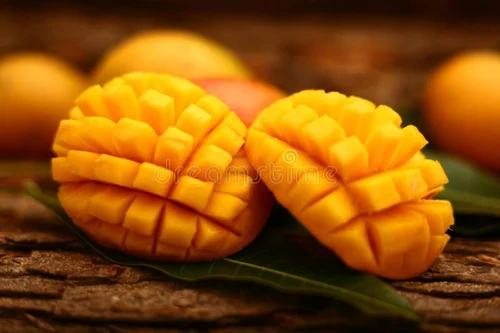Mango is known to increase the body’s internal heat in Ayurveda due to its sweet and sour taste. The fruit also has a cooling effect because it contains a high water content and can alleviate Pitta Dosha. Mango – The King of Fruits In Ayurveda, mango is classified as a Rajasic fruit. It means that it has an energizing effect on the body and mind. The Rajasic quality of mango is due to its ability to stimulate the digestive fire or Agni in the body. Mango has the ability to cleanse the liver and aid in digestion. This makes it a popular fruit in Ayurvedic diets. Those experiencing Pitta imbalances, such as inflammation, acidity, or heat-related disorders, should consume mango in moderation due to its heating nature. One should recommend eating mango in small quantities and in combination with other foods. with cooling foods, such as cucumber, mint, or coconut to balance its heating properties. In addition, according to Ayurveda, the timing of consuming mango is also crucial. During the summer season and daytime, you should consume the fruit to enjoy its cooling effect most beneficially. Eating it in the evening or at night may disturb sleep due to its heating properties. The fruit has heating properties, renowned as it is, but it also provides a cooling effect. To balance mango’s heating properties, it is recommended that you have it in moderation and combine it with cooling foods. Also, the timing of consuming mango is crucial. People should eat it during the summer season and during the daytime to maximize its benefits. If you are struggling with any health issues, you can either book a consultation with us or send us a message via WhatsApp to +91 79074 89839. We have the best Ayurvedic doctors in Trivandrum who are always glad to help you. If you have any queries, contact us. You can also visit us at our hospital.
Is mango a heating fruit?
